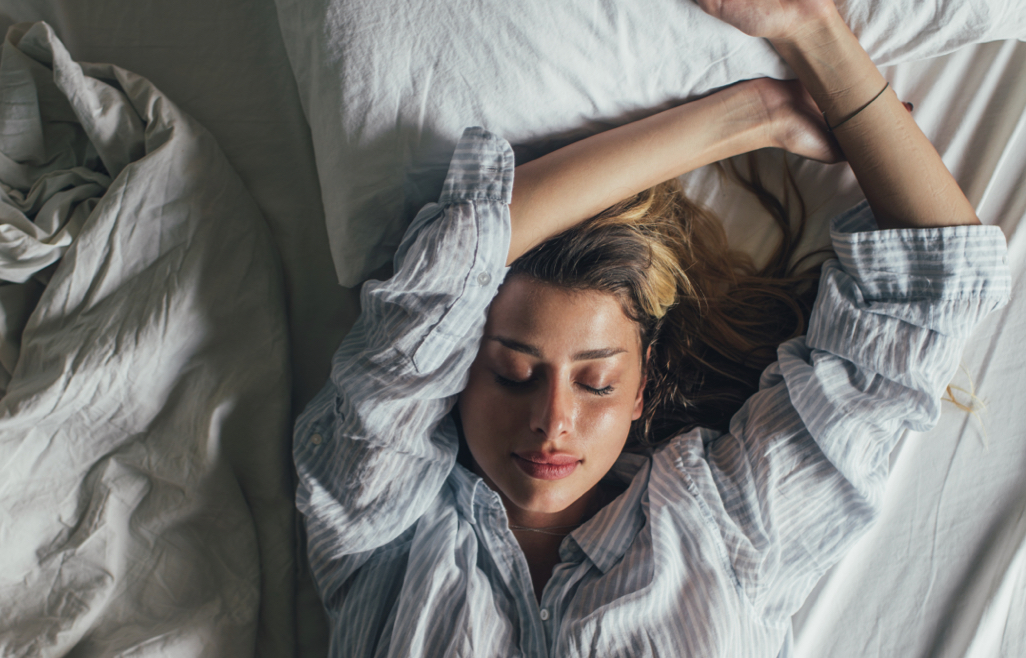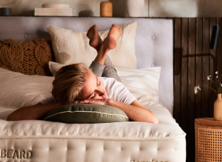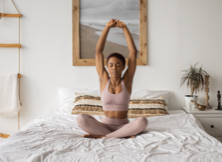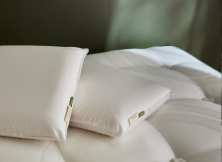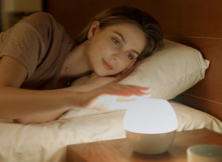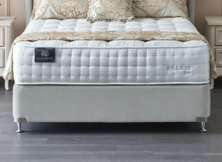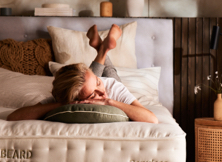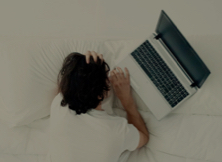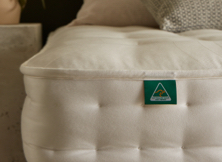Stress is an unavoidable part of life, and it’s perfectly normal to experience it from time to time. Whether it’s a looming deadline, a tough day at work, or an unexpected change of circumstances, being stressed can affect our health and wellbeing — and our ability to sleep.
While we can’t always control the source of our stress, it is possible for us to manage it in a healthy way. From exercising to meditation and journaling, there are plenty of ways to relax and de-stress after a tough day.
Here, we take a look at the effects of stress on our health and wellbeing, and share ten tips to unwind after a stressful day.
What happens to our bodies when we’re stressed?
Stress is our body’s way of helping us cope and respond when it thinks we’re being threatened. When we feel like we’re under pressure, our central nervous system instructs our bodies to release the hormones adrenaline, noradrenaline, and cortisol. These, in turn, cause a number of physiological changes to help us deal with the perceived threat. This is also known as the “fight or flight” response.
When we’re in this “fight or flight” state our heart races, our breath quickens, and our muscles tense, in order to prepare our bodies to react rapidly to an emergency.
Some amount of stress is actually good for us. It helps us develop resilience, keeps us alert, and helps us avoid danger. But when we’re constantly stressed out, it begins to take its toll on our body. The “fight or flight” response is only designed for immediate, short-term situations. When we’re constantly under stress, it can negatively affect our overall health and wellbeing.
Chronic stress might lead to ongoing tension headaches or migraines, higher blood pressure, and a slowed metabolism. It also has the potential to wreak havoc on our immune systems, leaving us at greater risk of illness or infection.
However, chronic stress doesn’t just take a toll on our bodies — it also affects our mental health. Stress puts us in a state of hyper arousal, which means we might experience trouble getting to sleep and staying asleep. This can lead to impaired concentration, a lack of motivation, and greater irritability or mood swings — and numerous studies have shown the link between poor sleep quality and mental health issues such as depression and anxiety.
“The research is clear. Good sleep is fundamental to peak mental and physical performance. Focus on your sleep, and reap the rewards,”
– Dr. Carmel Harrington, A.H. Beard’s Resident Sleep Expert.
Because of this, it’s important to manage stress in a healthy way and learn how to relax and unwind before bed. Luckily, if you’re feeling stressed out, you don’t just have to grit your teeth and bear it. There are plenty of ways that you can respond to stress and prevent it from taking a toll on your physical and mental wellbeing.
10 tips to unwind after you’ve had a stressful day
1. Take deep, controlled breaths. When you take slow, deep breaths, this sends a signal to your brain to calm down, which the brain then passes onto your body. There are a number of breathing exercises you can do to control your breathing, but one of the most simple solutions is belly breathing.
Sit or lie flat, then place one hand below your ribs and the other hand on your chest. Take a deep breath in, and focus on letting your belly push your hand out without your chest moving. Then breathe out slowly with pursed lips. Take your time with each breath, and repeat it up to 10 times.
2. Exercise regularly. Regular exercise is one of the pillars of good health, and can also help you unwind after a tough day. Although exercising is a form of physical stress, it actually reduces the level of stress hormones in our body — plus, exercising between the ‘golden hours’ of 5pm – 7pm gives your body temperature enough time to drop before bed, which is an essential precursor to sleep. On top of that, exercise stimulates the production of endorphins, which are a natural mood elevator. Try to get some form of exercise every day, particularly on days when you’re feeling stressed out. Even walking for 20 minutes can clear the mind and reduce feelings of anxiety.
3. Journal. Sometimes the simple act of writing down our thoughts and to-do list can help. Journaling comes with a number of health benefits, from clearing our mind to helping us process strong emotions. It doesn’t have to be time-consuming — even five minutes of journaling every day can have a positive impact on your mental health.
4. Practice meditation. Meditation is one of those healthy essentials that has been proven to reduce stress and anxiety, while also improving your focus and concentration. If you’re just starting out, try meditating for ten minutes a day using the Headspace or Calm app.
5. Try progressive muscle relaxation (PMR). One of the ways our body responds to stress is by tensing the muscles, and progressive muscle relaxation helps us release this tension.
Start by lying on your back and stretching out comfortably. Breathe in and focus on tensing one muscle group, such as your upper thights, for up to 10 seconds, then breathe out, completely relax for 10 to 20 seconds, and move on to the next one. If you’re just starting out, it might be beneficial to download a PMR app to guide you through all the muscle groups.
6. Avoid caffeine in the afternoon. Caffeine can help us remain alert throughout the day. However, it also increases our heart rate and blood pressure, making it even harder to relax and sleep. Even if you’ve had a stressful day, it’s best to avoid caffeine 6-7 hours before your planned bedtime — this extends to coffee, caffeinated tea, and even caffeine in chocolate! Opt for herbal tea or decaf drinks instead.
7. Create a regular sleep routine. Sleep and stress are closely linked, and it can often feel like a catch-22. Sleep is a powerful stress reducer, but if you’re feeling stressed out, it’s hard to get to sleep. However, when you have a regular sleep routine, your body clock naturally falls into a rhythm, which helps you fall asleep faster and sleep more soundly. Learn how you can create a regular sleep schedule here.
8. Opt for sleep-friendly foods . Nutrition is one of the four pillars of good health, but did you know that certain foods can also trigger a sleep-inducing hormone response and help calm the nervous system? If you’re having a stressful day, try these 15 foods that are scientifically proven to help you relax and sleep.
9. Unplug an hour before bedtime. With more of us working remotely, it’s becoming harder and harder to avoid bringing work stress to bed with you. However, it’s important to unplug the laptop, turn off the work emails, and switch off from work to give your body and mind time to unwind and prepare for sleep, particularly if you’ve had a rough day. At the same time, try to avoid screens at least an hour before bedtime, as the blue light from screens has been shown to suppress the production of melatonin and make it harder to fall asleep.
10. Create a soothing sleep environment. When you’re lying in a cosy bed surrounded by soft lighting, calming sounds, and pleasant scents, you can feel the stress of the day melting away. Invest in a supportive mattress, comfortable pillow and quality linens, and you’ll find yourself unwinding as soon as you slip under the covers and drift off into an easy sleep.
Create a soothing sleep environment with A.H. Beard
Whether you’re after a quality mattress, adjustable bed base, or supportive pillows, we have you covered from A to Zzz with our sleep solutions. Create a dreamy sanctuary to retreat to after a stressful day with a King Koil mattress, which features cutting-edge technology to support your body and minimise partner disturbance. Alternatively, opt for handcrafted luxury with our A.H. Beard Signature Collection or invest in our Nature’s Rest mattress for a natural night’s sleep.
If you need help unwinding before bedtime, pair your mattress with the Nox Smart Sleep Light. The Nox plays soothing sounds designed to help you relax and drift off to sleep, and wake up feeling refreshed.






